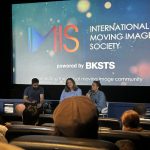 Produced by Guest blogger
Produced by Guest blogger
Abingdon Health Ltd – Birmingham Research Park, University of Birmingham
I was gratified studying within toxicology and my thesis-topic fitted with my desire to analyse biologically natural toxins, giving me the opportunity to spend two weeks working in a functioning Research & Development laboratory with a commercial company (Abingdon Health Ltd).
Arriving at the BioHub in Birmingham Research Park, I had never seen equipment of such a professional calibre! As I was issued my own set of analytical pipettes I felt a thrill. Although, not technically work experience as it was for my MSc project, going to the BioHub put me in a position to work outside of BU and to use R&D instruments only accessible at commercial companies.

Leaving the BioHub with a prototype of my own biochemical assay alongside various chemicals in a cardboard box marked “TOXIC” caused me to get some very strange looks on my train back home! I have since had the pleasure of hearing that my supervisor found me employable and consequently, I have even been offered a position (another much-needed ego boost)!
Venomtech
When I first started my MSc I had sent out my CV to companies that I thought I would be interested in working for, post-study. I had all but forgotten about these when I received a tantalising email from Venomtech. Intrigued by my toxicological experience they wanted me to come in to interview for a placement. Fast-forward two weeks; I had landed my dream work-experience.
As a company, Venomtech extracts and isolates toxins from the venoms of various species of snakes, tarantulas, true spiders (black widow etc), scorpions, centipedes, millipedes and other invertebrates for use of drug design. For those of you who don’t know, toxins from venoms are currently being explored as ‘blue-prints’ for creating novel drugs, for example the venom from the Cone Snail had been utilised to make a pain-killer (Ziconotide), which is even more effective than morphine and comes without the risk of addiction and tolerance associated with Opioids.
I was trained in basic husbandry techniques (changing water, checking well-being, feeding) to care for the invertebrates, I was in my element. My excitement only increased when I was taught the venom extraction procedures!
The basic concept is to anaesthetise the invert, perform checking procedures ensuring that the species is truly ‘asleep’ and then hook their fangs (Ahh!) over a glass tube, before stimulating the venom glands and collecting the venom, simple right? Not so much when a massive tarantula ‘woke up’ as I was pulling its fangs back for extraction, a shriek escaped my mouth and I jumped back, tainting my previously calm and collected manner in the lab.
I hope in the coming weeks to be able to conduct my own research project with Venomtech, strengthening my scientific authority. Working with dangerous wild animals has, as cliché as it may sound, inspired me to never give up on my child-hood dream!

Now
I will soon be starting a position as a Forensic Toxicologist; the interviewers were impressed with my variety of work experience. For science courses, especially AAFS, it’s becoming more important to have an array of transferable skills across different areas.
My variety of experiences allowed me to develop skills in disciplines such as research (having designed and conducted two research dissertations), presentation skills (I have had my work selected to present in Manchester UKIAFT and Texas SOFT), as well as having skills unique to different areas of science.
Forensic (30 week) placements are few and hard to come by, and completing short work experiences alongside studying not only provides you with valuable multitasking capabilities, which is a skill-set in itself desired by employers, but also allows you to complete a degree a year earlier than those who opt for a 30 week placement!
In four years most others have completed their undergraduate degree and placement. In comparison, I have completed my undergraduate degree, a Master’s of science and a multitude of short placements that have given me the necessary experience to progress into a graduate job.









